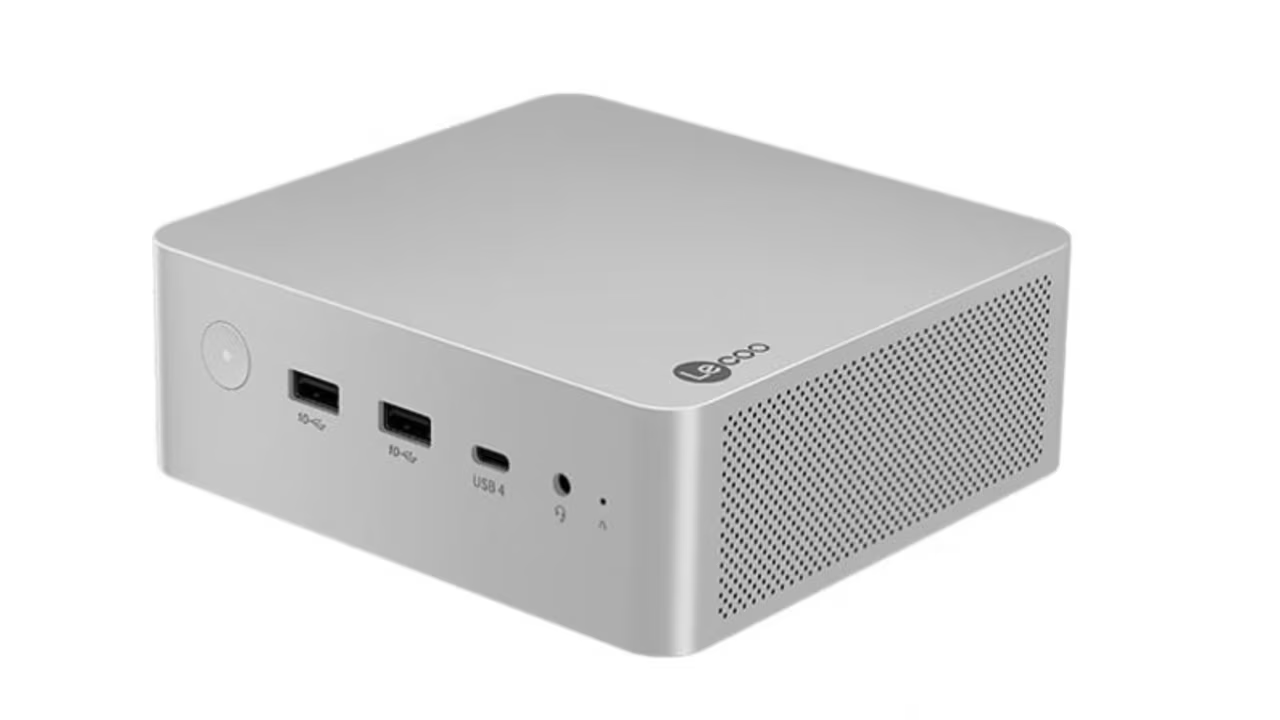Lenovo's Lecoo Mini Pro: A Quiet Entry with Big Performance Potential
Lenovo, a company known for its strategic moves in the PC market, has once again made a quiet, yet significant, splash with the unannounced release of its new Lecoo-branded mini PC in China. Dubbed the Lecoo Mini Pro, this compact system is turning heads not with a flashy launch event, but with its compelling blend of relatively strong performance, a remarkably small footprint, and a price point that's genuinely hard to ignore. It's a classic Lenovo play, isn't it? Just drop something solid into the market and let the specs speak for themselves.
This little powerhouse, which surfaced around late July 2025, packs a punch with an AMD Ryzen 7 8745H processor and integrated Radeon 780M graphics. For those keeping an eye on the mini PC space, this combination immediately signals a device capable of far more than just basic office tasks. And at a starting price of approximately $377 (CNY 2,699), it certainly makes you wonder how they've managed to squeeze so much value into such a small package.
Unpacking the Performance: Ryzen 7 8745H and Radeon 780M
At the heart of the Lecoo Mini Pro lies the AMD Ryzen 7 8745H, a processor that's typically found in more substantial laptops, not usually in these ultra-compact desktop solutions. This isn't just some low-power, efficiency-focused chip; we're talking about a capable CPU that can handle demanding applications, multitasking, and even some light content creation without breaking a sweat. It's a significant step up from the more common U-series processors often seen in mini PCs, offering a level of computational grunt that truly elevates the user experience.
But the real kicker for many, myself included, is the integrated Radeon 780M graphics. This isn't a discrete GPU, no, but for integrated graphics, it's remarkably potent. It means the Lecoo Mini Pro isn't just a productivity machine; it can comfortably handle casual gaming, media consumption at high resolutions, and even some more graphically intensive workloads that would bring lesser mini PCs to their knees. Think about it: a system this small, that can actually play modern games at decent settings? That's a game-changer for many who want a discreet setup without needing a dedicated graphics card. It's a testament to how far AMD's integrated graphics have come.
Design Philosophy: Compact, Quiet, and Efficient
Beyond the raw specifications, the Lecoo Mini Pro's design ethos is clearly centered around compactness and efficiency. It's built to be unobtrusive, easily fitting into tight spaces on a desk, behind a monitor, or even tucked away in an entertainment center. This low-power design isn't just about saving on your electricity bill, though that's a nice bonus. It also translates directly into quieter operation, a crucial factor for anyone who's ever been annoyed by a noisy PC fan in a small room.
The sleek aesthetic suggests it's designed to blend seamlessly into modern home and office environments. It's not flashy, but it doesn't need to be. Its appeal lies in its utility and its ability to deliver performance without demanding much physical space or power. For remote workers, students, or even just as a dedicated media server, this form factor is incredibly appealing. I've always found that the less clutter on my desk, the better I can focus, and mini PCs like this really help with that.
Market Dynamics: China's Growing Mini PC Appetite
The quiet launch of the Lecoo Mini Pro in China makes perfect sense when you look at the broader market trends. China has a robust and rapidly growing demand for compact, yet powerful, computing solutions. Space is often at a premium, and consumers are increasingly looking for versatile devices that can serve multiple purposes without dominating their living or work areas. Lenovo's decision to introduce this device through its Lecoo brand, which often focuses on value-driven products, positions it perfectly to capture a significant slice of this domestic market.
Global Aspirations and Future Outlook
While initially released only in China, the specifications and pricing strategy of the Lecoo Mini Pro strongly suggest it could be a formidable contender if Lenovo decides to launch it globally. The demand for powerful, affordable mini PCs isn't exclusive to China; it's a worldwide trend. Many users, myself included, are moving away from bulky desktop towers in favor of more minimalist setups that still offer plenty of horsepower.
The initial reception among tech enthusiasts in China, as seen on various social media platforms, has been overwhelmingly positive. Users are highlighting the incredible value proposition, praising its balance of performance and affordability. Tech reviewers who've gotten their hands on it have echoed this sentiment, noting its potential to disrupt the lower-to-mid end of the mini PC market. Could this be the start of a new wave of high-performance, budget-friendly mini PCs? Only time will tell, but Lenovo's Lecoo Mini Pro has certainly set a high bar for what's possible. It's an exciting time for compact computing, and this device is a prime example of why.
